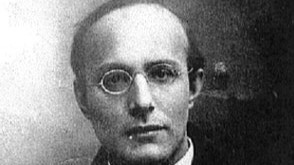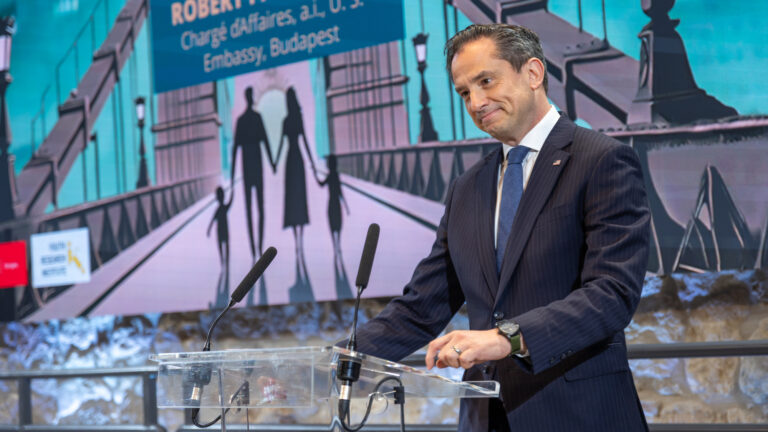‘Our thesis is that the idea of a self-adjusting market implied a stark utopia. Such an institution could not exist for any length of time without annihilating the human and natural substance of society.’ Acclaimed economic historian of Hungarian origin Karl Polanyi (or Károly Polányi in Hungarian) wrote this brilliant observation on the first page of his masterpiece, The Great Transformation. What is implied in this remark is that laissez faire economic policy, that originated in England in the 19th century, is far from being inscribed in the nature of mankind and is still less supportive of it. It is, as Polanyi carefully elaborates, an artificial political ideology that was devised by economists like Malthus and Ricardo, was detached from the real economic fabric of society, made of small farms, workshops, stores, inns, guilds and proved to be lethal to the latter. In fact, all this microcosmos of smaller economic realities, closely intertwined with family life was virtually obliterated by large industrial complexes, industrial farming, megastores etc., since such organization of labour force proved to produce more profit than the traditional organization. And bigger profit is exactly what a laissez faire economic policy aims to achieve—at the expense of family life that must adapt.
The unnatural character of a profit-oriented economy was already criticized by Aristotle in his Politics as alien to the concept of economy itself, so that he renamed it chrematistics. The difference between economics and chrematistics is that the first has a limit while the latter is unlimited. The first is, as its etymology shows, aimed at the well-being of the oikos, the family house, while the latter has no end or better is an end to itself. This infinite, excessive character of capitalism is as such an antagonistic force to the well-being of the family that disrupts it in its foundations, as we can well see in present day society.
The ‘homo economicus’ that results from the capitalistic order is a human being that in the name of profit tends to transcend his own nature in a transhumanistic fashion and eventually to destroy himself (and his natural surroundings) in the name of profit. This can be most clearly seen in the demographic crisis in the countries where laissez faire economy is most strictly implemented. But, to be sure, for Polanyi also a Marxist socialist (or national-socialist) solution for the economy is no solution at all, since Marx’s thought was also dominated by the idea of the ‘homo economicus’ as that of his laissez faire-believing English counterparts (‘due to Marx’s close adherence to Ricardo and the traditions of liberal economics’, p. 126). This is why socialist, centrally planned societies by definition cannot favour natural societies, as in primis the family. All this is of course true also for ‘national-socialist’ solutions (‘In order to comprehend German fascism, we must revert to Ricardian England’, p. 46).
‘Socialist, centrally planned societies by definition cannot favour natural societies, as in primis the family’
These insights of Karl Polanyi are, in my opinion, very important now when Hungary is taking a worldwide lead in financial policies that tend to favour family life in order to overcome the demographic crisis. There is a well-rooted belief in the conservative world that a laissez faire economy is the one that has the best results and that ultimately tends to reinforce family life and overcome the demographic crisis. This Reaganian belief seems to be wrong, as Andrej Lokar recently stressed in this same magazine. Therefore, policies such as pro-family tax cuts, housing programmes, child benefits etc., all resulting in a kind of family income system that aims to reduce the harm inflicted on families by a Ricardian conception of the economy (which, obviously, cannot be completely overthrown, since we cannot go back to the lifestyle of preindustrial societies), should become a vital part of conservative policies, and should be seen as such in the modern conservative movement, as Allan Carlson pointed out in his Third Ways.
If we take now a short look at the roots of laissez faire economics (or its socialist derivatives), we have already noted its un-Aristotelian conception of economy. This comes as no surprise since all Modern Philosophy from Descartes on is pervaded by a widespread anti-Aristotelian sentiment. This sentiment is basically directed against Aristotle’s claim that there are natures, essences in reality that denote, on the one hand, the limits of possibility regarding what can be done with reality, while on the other hand, they direct our activity to actualize these possibilities (or potencies). The nature of man as a reasonable animal (animal rationale) is such a fundamental limit and goal, that directs us in our activity. But since Modern Philosophy from Descartes on dismisses in one way or another the reality of essences as subjective constructs or structures, it is no wonder that Modern Economics theorized an economy (or better chrematistics) with no limits, where the profit is its own aim in a similar way as Nietzsche theorized a Will that is its own aim: the Will to Power that is basically the Will to Will, as Martin Heidegger explained in his critique of Nietzsche and of the modern technical world that seems to be just another aspect of the same problem, analysed by Polanyi: both modern technology and capitalism strive to accumulate power. But Heidegger’s thought seems to have not yet overcome the problem since for him Aristotle’s essences are still part of the problem (that he calls ‘Metaphysics’) and not its solution.
In other words, only a philosophy of an Aristotelian kind that can ground the reality of essences is also able to show the proper limits to economy and to put it in service of the real, familial structure of human society. The development of such a philosophy in the dialogue with the present Postmodern context should also be one of the major concerns of the conservative movement, if we want it to succeed on a deeper level and that its success will not be transitory—if we want to live on a land, where it could be said with the poet of the Danube: ‘Hier aber wollen wir bauen.’ (‘Here, however, we wish to build.’)[1]
[1] A line from Friedrich Höldrelin’s poem ‘Der Ister ’








